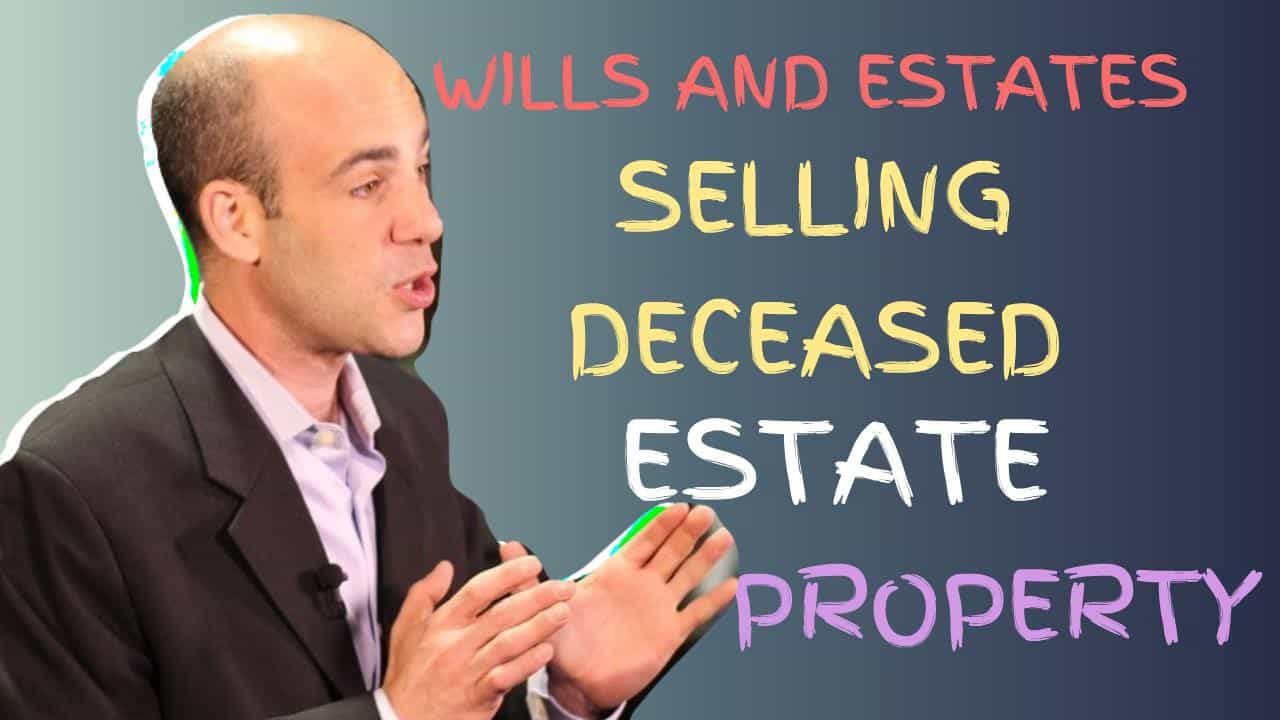If you would like to hear the audio version of this wills and estates Brandon’s Blog, please scroll to the bottom and click on the podcast
Introduction
Earlier this year, I wrote several blogs dealing with the administration of wills and estates. As I previously wrote, Ira Smith and I got very interested in this area. The reason was that we saw that the skill set required and the activities undertaken by an executor of a deceased estate, were quite similar. In Ontario, the executor of a deceased estate is called an estate trustee.
My series of blogs on the administration of a deceased estate in Ontario, in no particular order, were:
- DYING WITHOUT A WILL IN ONTARIO: DISTRIBUTION TO HEIRS NOT EASY
- TRUSTEE OF DECEASED ESTATE: WHAT A TORONTO BANKRUPTCY TRUSTEE KNOWS
- TRUSTEE OF PARENTS ESTATE: DO I REALLY HAVE TO?
- ESTATE TRUSTEE ONTARIO REMOVAL ISSUES
- SUCCESSION LAW REFORM ACT OPPORTUNITIES FROM A TORONTO BANKRUPTCY TRUSTEE
- TRUSTEE ACT ONTARIO BY A TORONTO BANKRUPTCY TRUSTEE
- ADMINISTRATION OF ESTATES ACT CANADA: EASY FOR TORONTO BANKRUPTCY TRUSTEE TO DO
- ESTATES ACT ONTARIO: TORONTO BANKRUPTCY TRUSTEE REVEALS HIDDEN SECRET
- PROBATE IN ONTARIO – SMITH ESTATE TRUSTEE ONTARIO BEGINS
The purpose of this Brandon’s Blog is to review a very interesting recent Court of Appeal for Ontario decision appealing a lower Court’s ruling in an estate matter. The appeal was launched by the Estate Trustee who felt the lower court judge erred in approving a sale of an estate asset for a lower price than the Estate Trustee thought was proper. The Court of Appeal for Ontario upheld the lower court’s decision.
This could very well happen to a receiver or trustee in an insolvency file. Again, another similarity between the role we take on in an insolvency file administration and the role Smith Estate Trustee Ontario takes on as Estate Trustee in the administration of a deceased estate.
Wills and estates definition
First some basics. An estate is the property that an individual owns or has a lawful controlling interest in. The term is usually made use of to define the assets and liabilities left by a person after death. A will is a document that states your final wishes. It is a document that becomes operative after your death. It will appoint one or more people to act as an estate trustee. It will also provide for how you want your assets to be divided up amongst your beneficiary or beneficiaries.
On December 6, 2019, the Court of Appeal for Ontario released its decision in the legal case Loran v. Weissmann, 2019 ONCA 962 (CanLII). As I mentioned, the Estate Trustee appealed the lower court’s decision released in January 2019. The issue was one that could easily come up in other wills and estates. Since the issue being appealed was the lower court’s decision on a sales price for an asset, this issue also can arise in insolvency files. Just a different context.
Wills and estates Ontario: What was the issue?
This appeal by the estate trustee occurred out of a disagreement regarding a provision in the will concerning the sale of the business owned by the deceased. Unfortunately, this happens all too frequently. The provision in dispute was regarding the sales price of the business.
The will stated that the respondent, a long-time employee of the business, could purchase the business. The purchase price stated in the will was “…the lesser of $1.75 million or “the price determined by multiplying the earnings of…(averaged over the last three fiscal periods) by a factor of 5.5”.
The will also stated that the price paid by the respondent will be provided by way of a promissory note, with interest payable at 5% per year. There will be an annual repayment to the estate of not less than $180,000, to be made in month-to-month payments. The promissory note was to be secured by a general security agreement against the assets of the business and by the registration of a mortgage against the respondent’s house.
So far it sounds pretty simple, or so you would think.
They couldn’t reach a deal
The long-time employee tried to purchase the business, but the estate trustee and the employee could not agree on the purchase price. That is how they ended up in court.
The lower court judge hearing the evidence ruled that the sales price will be $529,611. He calculated this as $716,921, using the formula in the will, minus $187,310. This latter amount was an amount the Judge ruled was improperly paid by the company to the estate. The Judge also ruled that the employee was not required to provide the collateral mortgage. The estate trustee felt that this went against the will.
The appeal by the estate trustee
The appellant submitted that the application judge made the following mistakes:
- he treated the respondent as a beneficiary as opposed to a favoured buyer;
- he ignored the need of a collateral mortgage;
- he approved the respondent’s evidence about the amount to be attributed to the deceased owner’s wages for the purposes of computing the earnings of the company; as well as
- he incorrectly subtracted from the sales price the $187,310 paid out of the company to the estate.
The Court of Appeal for Ontario did not agree with any of these grounds for appeal.
The reasons were given by the Court of Appeal for Ontario
Beneficiary vs favoured buyer – The appellate court did not find any error in the lower court ruling on this. The Court of Appeal for Ontario noted that the will did not try to maximize the value of the business. It did not state that the estate trustee had to run a marketing effort to obtain the best price under the circumstances.
You would expect this to be the case in any sale by either an estate trustee or a receiver or licensed insolvency trustee. The appeal court noted this absence of intention. Rather, they agreed with the lower court that the intention was for the long-time employee to buy the business under the formula in the will.
Collateral mortgage – The evidence before the lower court was that at the time the will was written, the long-time employee did not own a home. The will also did not have any language about what minimum amount of equity the long term employee’s home had to have to provide for the collateral mortgage security. There was no argument that the lower court judge had the right to apply commercially reasonable terms. So, since the will was so unclear on what wording and real value the collateral mortgage security had to have, the lower court judge ruled that it would be meaningless and was unnecessary in the circumstances. The Court of Appeal for Ontario agreed again with the lower court judge.
The owner’s salary adds back to normalize earnings – The evidence was that at trial, both the appellant and respondent provided expert witness reports on this issue. The lower court judge preferred the respondent’s expert evidence. The appellant took issue with this. The Court of Appeal found that the lower court judge had the right to rely on one or the other of the expert’s reports and made a judgment call. There was nothing in that decision to be overturned.
Payment of $187,310 – The appellant’s position was that this payment would one day be rectified by the company recording this payment as a dividend. The appellant stated that the company had the right to pay dividends, which it had in the past. The lower court judge agreed that, as long as the payment of dividends did not render the company insolvent, it could do so.
The lower court judge also found that in the past the company had paid a dividend. However, it did not characterize this payment as a dividend, but rather, just payment to the estate. The lower court judge ruled that the purchaser should get the benefit of those funds having been stripped out of the company by a reduction in the purchase price of that same amount.
It turned out that the estate trustee caused the company to make that payment to the estate so that the estate could then pay out those funds to support the deceased’s widow. The company did not record that payment as a dividend or as salary to the widow. The lower court drew a distinction between dividends and gratuitous payments from the company’s bank account. The appeal court found that decision was within his discretion and there is no basis to interfere with the lower court judge’s finding.
So, the appeal court dismissed the appeal entirely and ordered that the appellant pay the respondent’s costs fixed in the amount of $10,000.
Summary
As I stated at the beginning, there are a lot of similarities between acting as an estate trustee and administering an insolvency file. Disputes normally arise in insolvency files. As this case shows, disputes also arise regularly in the administration of a deceased estate.
As a result of the similarities, we started this year Smith Estate Trustee Ontario. We currently have several estate trustee administrations underway. Our mix of empathy, experience and impartiality provides us with a distinct viewpoint. We have the capability to appropriately administer a deceased estate. Through our efforts, we minimize problems and accomplish outcomes for all stakeholders in an economical way.
We provide a full range of services to provide solutions for the complex Estate issues to end the pain and frustration the stakeholders are experiencing. We apply our expertise and creative thinking to take care of all details to end your pain and achieve the goals of the beneficiaries and other stakeholders. Contact Smith Estate Trustee Ontario today for your free consultation. Get our no cost full-scale analysis of your issues and our recommended options to solve your problems allowing you to move forward confidently. Check out our website by clicking HERE.
[monkeytools msnip=”https://monkeyplayr.com/playr.php?u=5173&p=21800″]



